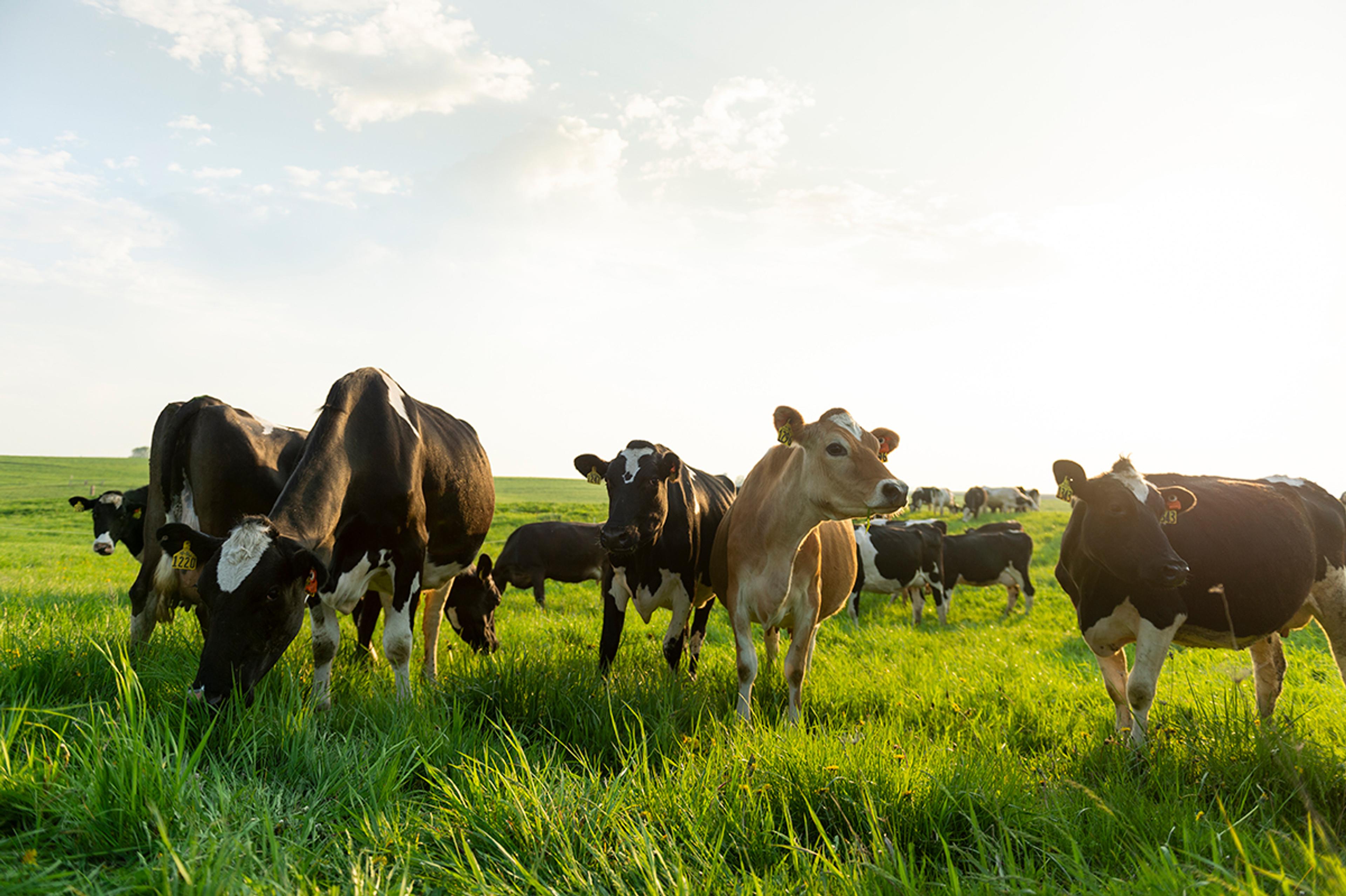
Farming
Are There Antibiotics in Organic Milk?
Have you seen the 'no antibiotics' statement on our Organic Valley product packages and wondered if it’s true? The short answer is 'yes!' Read on for more!
Does Organic Milk Contain Antibiotics?
USDA Organic rules do not allow the use of antibiotics in organic livestock farming. It’s quite clear on that point.
In addition, if a foreign product is going to be sold, labeled or represented as organic in the United States, then it must be certified by the USDA or by a country that has organic equivalency with us.
That’s a pretty simple rule on the surface, and if that’s all you feel you need to know, then awesome!
If you’d like to know more about antibiotics in agriculture, read on.

A livestock chiropractor shows an Organic Valley farmer how to feel for changes in a cow's body that could indicate it needs additional care.
What are Antibiotics For?
Antibiotics are medicines developed to fight infections by killing bacteria or making it difficult for bacteria to grow and multiply, according to the Centers for Disease Control and Prevention (CDC).
What About Antibiotics in Non-organic Farming?
Antibiotics are allowed in conventional agriculture, and they are used regularly. In fact, the majority of the antibiotics sold in the U.S. are used on livestock, including dairy cows.
Are Antibiotics Harmful?
The fact that antibiotics are allowed in non-organic farming means there are risks for animals and humans, the most serious being antibiotic resistance, which renders antibiotics powerless against infection. Animals can pass resistant bacteria to humans through farm worker contact or through unsafe food handling at home. The CDC has in-depth information regarding antibiotic resistance.
Today, the U.S. Department of Agriculture, the Food and Drug Administration and the Environmental Protection Agency administer a National Residue Program to prevent antibiotic residues in food.

No antibiotics in Organic Valley animals means no antibiotics in milk from our dairy cows!
What if Organic Treatments Don’t Work?
Like humans, animals can often fight off a bug on their own if they’re given nutritious food, supplements, rest, quiet and extra care from a farmer or holistic veterinarian.
Organic Valley farmers place a strong focus on preventing illness first, and if an animal does become sick, they make every effort to use natural methods to keep their organic animals antibiotic-free.
Organic Valley’s animal care experts also provide support to our farmers by helping them spot health warning signs before they develop into problems, advising the farmer and their local veterinarian on organic-approved treatment options, providing educational workshops and materials and more.
If organic-approved methods don’t work, then farmers must use antibiotics if they are the correct treatment for the problem. Organic farmers are absolutely not allowed to let an animal suffer.
What if Antibiotics are Used?
If antibiotics are used, then the animal is no longer organic. The farmer must report it to their certifier, and its products must be segregated from the organic supply. The farmer might keep the animal with their organic herd but track it and milk it separately, move the dairy cow to a non-organic herd on their farm, or sell it to a non-organic farm.
In 1994, an Organic Valley committee started moving on a policy prohibiting the use of antibiotics. This was before there was a national organic standard that prohibited antibiotic use. Why did they do it? Because it was the right thing to do and because these farmers knew farming without antibiotics could be done. And the results were positive.
Organic Valley’s mission is about giving our farmers a stable way of life, and the effect of that lifestyle includes improving so many things around us. We strive to protect the environment, those who enjoy our products and our animals — and this means no antibiotics.
Related Articles
- Tags:
- animal care,
- antibiotics,
- food labeling

















